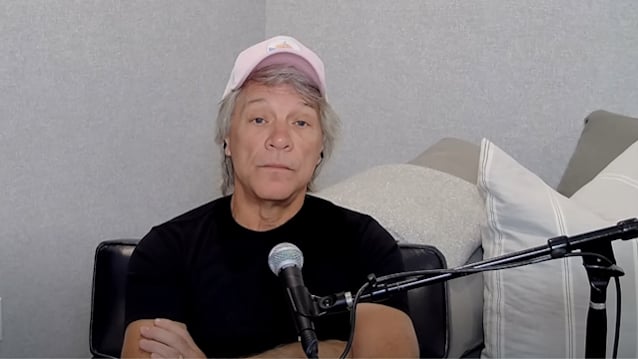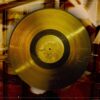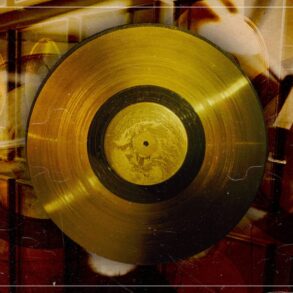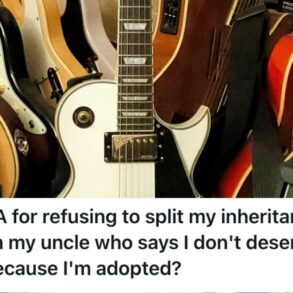
Jon Bon Jovi appeared on SiriusXM‘s “The Howard Stern Show” on Tuesday (April 30) to discuss BON JOVI‘s documentary series “Thank You, Goodnight: The Bon Jovi Story”, which is available on Hulu. Asked if he was shocked to hear, more than four years ago, that his longtime bandmate Richie Sambora had sold his music catalog to Hipgnosis Songs. He said: “People sell their catalogs often, but it wasn’t anything I’d ever considered.” Jon then explained how Richie selling didn’t change much on his end. “If it’s a collaborative effort on any song, then his share of [the licensing fees] would go to whomever bought it,” he said. “Mine is mine and, [for] anyone I’ve ever collaborated [with], theirs is theirs.”
Asked how much his own catalog might sell for, Jon said, “A lot,” but clarified that “it’s all speculative,” explaining several variables would be at play, including an artist’s popularity and how motivated they might be to sell their catalog.
“I have no desire to sell it,” he added.
Asked if worries about what happens to his songs after he dies and whether he has a plan in mind for what happens to his music catalog, Jon responded: “The songs will outlive all of us at this point. And that’s the beautiful thing about rock and roll in general. You or I hear a song on the radio and we remember where we heard it for the first time and what that song meant to us by that artist. And so we’ve been blessed enough to have had a number of those kinds of songs that people say, ‘Those are my memories and I like ’em.’ So those songs are going to live long after I’m gone. And I’m happy about that.”
Asked if someone has already approached him and said, “Listen, I’d like to buy your catalog,” Jon replied: “Sure, sure.” But, he added, “I’m not interested.”
Bruce Springsteen, Paul Simon, Bob Dylan, Stevie Nicks and Neil Young are some of the iconic musicians who have recently sold off substantial rights to their music, whether it’s just for publishing or the original recordings, known as masters. Investors, major music companies and private equity firms have poured billions of dollars into buying song catalogs, believing that the rise of streaming and growing music revenues will make song rights acquisitions highly lucrative in the long term as they can be exploited for up to 70 years after a musician’s death.
When musicians sell their songwriting catalogs, they take a lump sum now, rather than counting on royalties from their music on whatever platform might be most popular in a few decades.
Three years ago, Dylan sold the rights to all of his recorded music since 1962 to Sony Music Entertainment for a reported $200 million. Dylan had previously sold the songwriting portion of his catalog — which include music and lyrics — to Universal Music Publishing Group for a reported $300 million. In 2021, Nicks sold her portion of publishing rights to her songs to Primary Wave for a reported $100 million. That same year, Springsteen reportedly sold his catalog to Sony for more than $500 million.
“A lot of the artists that are selling their catalogs are getting to a point in their lives where they are planning their estates, sort of planning for the future and they are at a point in their lives where it makes sense to sell their music to provide for their families,” Hannah Karp, editorial director at Billboard, told CNN in January 2022.
A month ago, it was announced that KISS had sold its catalog, brand name and IP to Swedish company Pophouse Entertainment Group in a deal estimated to be over $300 million.
This post was originally published on this site be sure to check out more of their content







